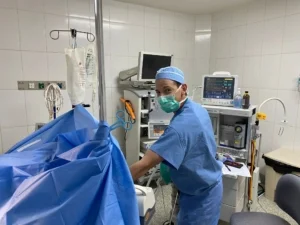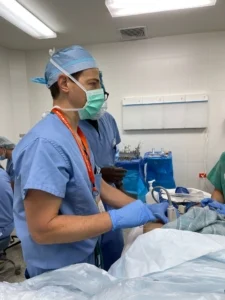
As a certified registered nurse anesthetist (CRNA), the desire for professional autonomy is not merely a personal aspiration; it’s an essential component that underpins our ability to deliver high-quality anesthesia services and contribute meaningfully to the healthcare ecosystem. As advocates for patient well-being and safety, CRNAs find themselves at the intersection of medical expertise and compassionate care. Facilitating the autonomy of CRNAs is not about asserting independence for its own sake. It’s about fostering an environment that nurtures the unique skills, experiences, and perspectives we bring to healthcare.
The effect of professional autonomy on recruitment and retainment, healthcare efficiency, and patient outcomes provides some of the most significant improvements to anesthesia care:
1. Improves healthcare clinician recruitment and retainment

Regardless of industry, individuals tend to feel more rewarded and satisfied when they can use all their skills to their maximum potential. Clinicians — CRNAs included — are no different and thrive when their whole skillset can be applied when helping patients. When CRNAs are in healthcare settings that afford them professional autonomy, we see more job satisfaction, an increase in recruitment, and less turnover in the anesthesia workforce.
With a shortage of healthcare professionals in anesthesia, employers need to offer advantages to recruit and retain anesthesia clinicians. Professional autonomy is an area that Sound Anesthesia supports, and for that reason, they’ve seen a higher success rate than the national average on recruitment and retention of CRNAs among anesthesia management companies and employers nationwide.
2. Improves healthcare efficiency
When clinicians can practice to their full education and training through professional autonomy, there is more productivity and less duplication of services between clinicians in the healthcare system. This reduced cost on the entire healthcare system benefits healthcare facilities and the patients they serve. Sound Anesthesia continues to be a leader in helping healthcare facilities maximize the anesthesia services they provide at lower costs by supporting the professional autonomy of its anesthesia providers.
3. Improves patient outcomes

More healthcare providers can provide a larger scale of service through the support of professional autonomy, which ultimately leads to greater overall access to care for patients. More patients will be able to receive the healthcare services they need, especially during the clinician shortage we’re currently experiencing nationwide. When patients can access the healthcare system in a timely fashion, more needed healthcare is provided, and patient outcomes improve. For example, when CRNAs can have professional autonomy, we see greater access to needed surgical care, which leads to better patient outcomes and patient satisfaction.
By and large, the empowerment CRNAs experience when they can practice at the top of their license creates benefits for every level of healthcare. Organizations like Sound see improved recruitment and retention, hospitals and surgery centers see improved results, and patients receive accessible care. Learn more about what a career with Sound Anesthesia can offer: https://careers.soundphysicians.com/jobs?search_location=&search_category=anesthesiology&search_job_tag=CRNA&search_job_type=all
